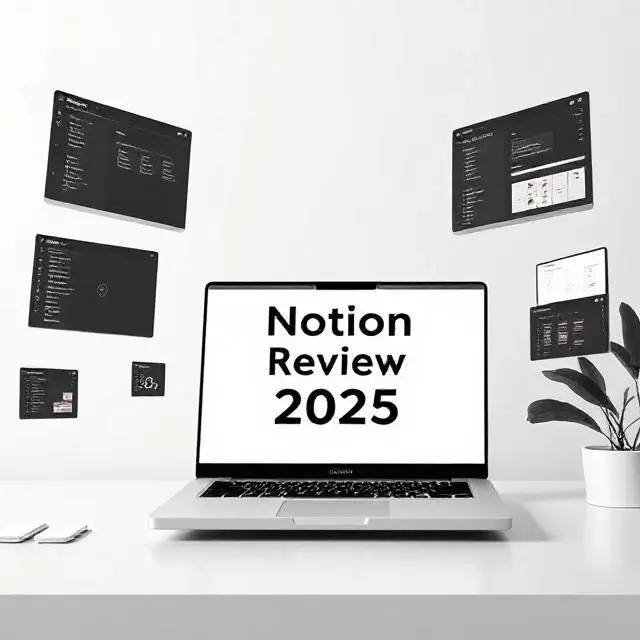Table of Contents
Introduction
Notion Review 2025 if you’ve been wondering whether this productivity platform still lives up to the hype, you’re not alone. In an age where teams are remote, individuals are juggling side projects, and creators need flexible tools, Notion has positioned itself as the Swiss Army knife of productivity apps. From note-taking and task management to project planning, content calendars, and even AI writing support, it promises to replace a stack of tools with a single, streamlined workspace.
Over the past few years, Notion has introduced major upgrades smarter AI, tighter integrations, faster performance, and more robust team features all in response to growing competition from platforms like ClickUp, Trello, and Evernote. But with so many features packed into one interface, some users now wonder: has Notion become too cluttered and overwhelming for the average user? Or is it still the best all-in-one platform in 2025 for getting things done?
In this in-depth review, we’ll break down Notion’s user experience, core features, collaboration tools, pricing tiers, and real-world pros and cons, to help you decide if it’s the right fit for your personal workflow or your team’s needs this year.
User Interface and Experience
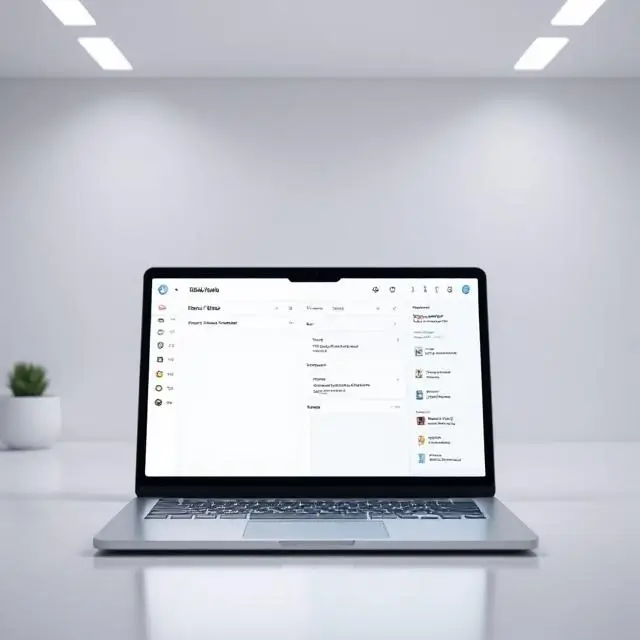
Notion’s user interface in 2025 remains one of its strongest assets. The design is clean, minimalist, and distraction-free, which makes it approachable for new users. Everything from the side panel to the top bar is intuitively laid out, allowing users to focus on creating and organizing content without visual clutter. One of Notion’s standout features is its high level of customizability — users can choose from a wide range of templates, toggle between light and dark themes, and view content in multiple formats like tables, lists, and Kanban boards. However, with all this flexibility comes a bit of a learning curve. While beginners can get started quickly with pre-made templates, mastering advanced layouts and databases may feel overwhelming at first. Still, for those willing to invest a little time, the payoff is a highly personalized and powerful workspace.
Core Features and Tools
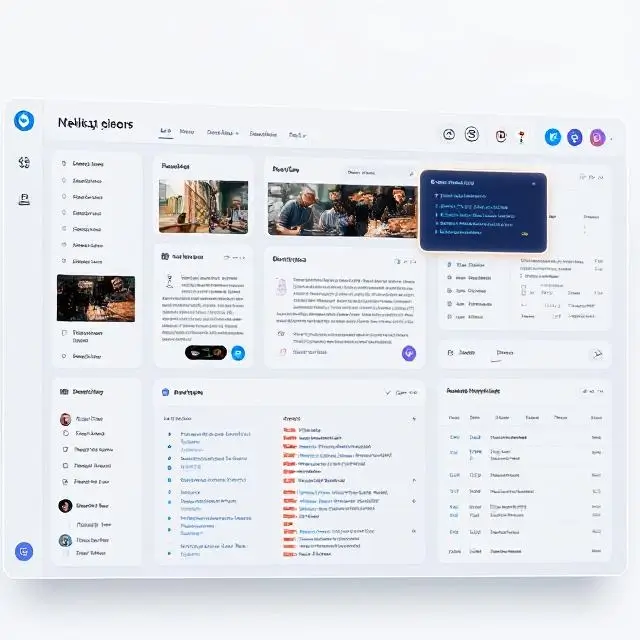
At the heart of Notion’s appeal is its powerful feature set, designed to replace multiple productivity apps with a single unified workspace. Page creation is fast and flexible — users can build everything from simple notes to full project dashboards using Notion’s block-based editor. Each block can be text, images, checklists, code snippets, or even embedded files, allowing for a deeply structured and organized approach. One of Notion’s most powerful tools is its database system, where users can create and filter complex tables, toggle between different views (like Kanban boards or calendars), and link data across pages. Notion also supports seamless integration with third-party apps such as Google Calendar, Slack, and GitHub, making it a versatile hub for team collaboration and workflow management. In 2025, the built-in AI assistant adds another layer of utility, helping users generate text, summarize content, and get smart suggestions based on context — all without switching tabs.
Pricing and Plans
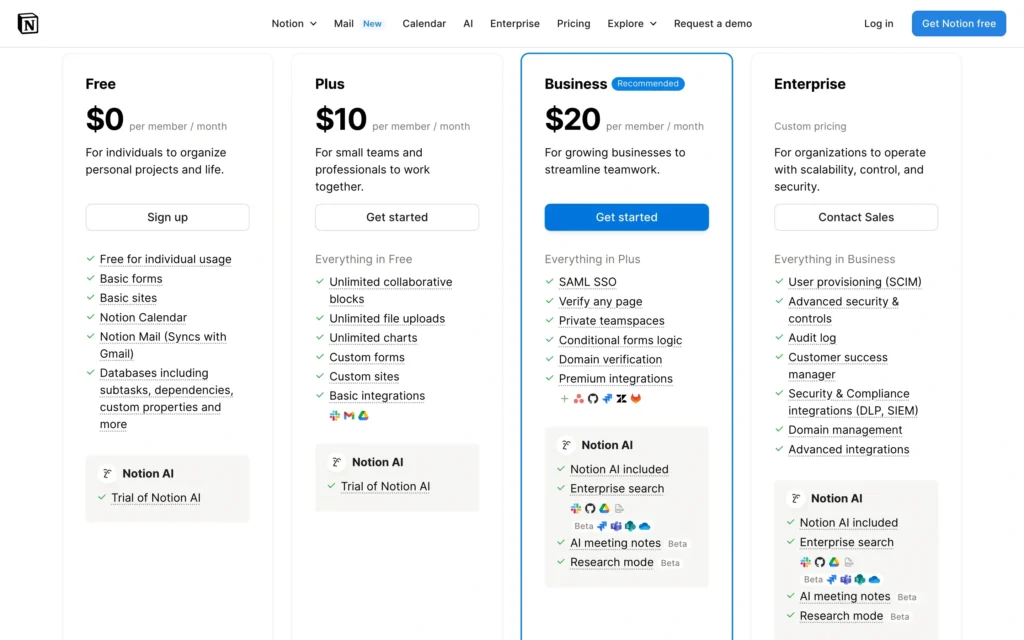
1. Free Plan vs Personal Pro vs Team Plans
Notion offers three main pricing tiers:
- Free Plan: Ideal for personal use, this plan includes unlimited pages and blocks, sharing with up to 10 guests, and access to basic tools. It’s great for students or anyone starting out.
- Personal Pro Plan: Priced affordably, this tier includes unlimited file uploads, version history (up to 30 days), and priority support. It’s designed for freelancers or professionals who need more control and storage.
- Team Plan: Built for collaboration, it includes everything in Pro plus advanced sharing permissions, unlimited team members, and a collaborative workspace for seamless teamwork.
2. What Do You Actually Get in the Paid Plans?
With the paid tiers, you unlock:
- Unlimited file uploads
- Advanced page analytics and history
- Team administration tools (for the Team Plan)
- Improved collaboration features like guest limits and sharing control
- Access to priority customer support
3. Is Notion AI Included in Pricing Tiers?
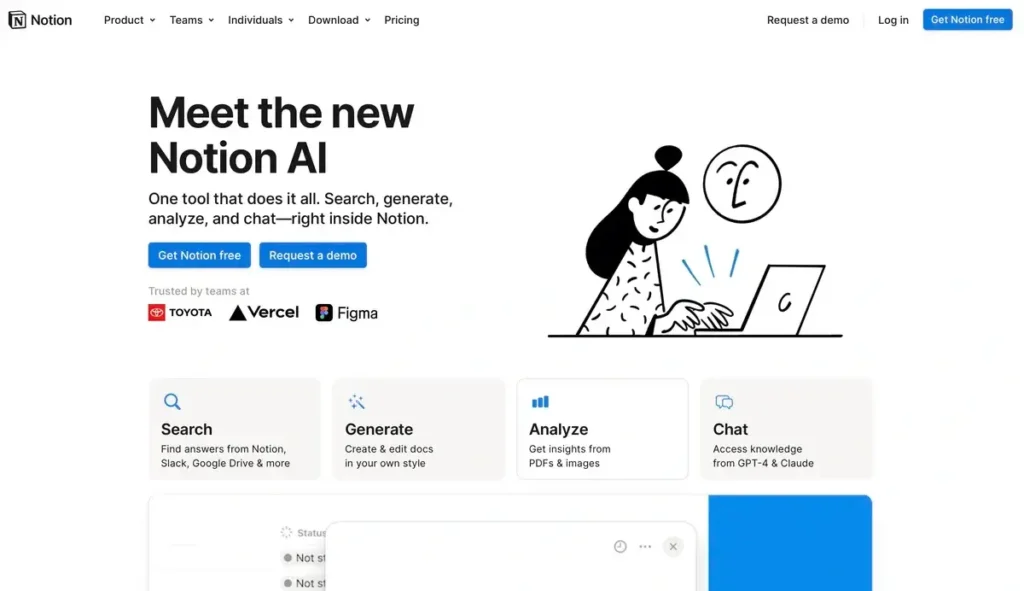
Notion AI is not fully included by default in all plans.
- On the Free Plan, AI features are available in a limited capacity.
- For full access to tools like content summarization, auto-writing, and task generation, you’ll need to purchase AI as an add-on or subscribe to plans that include AI access (such as specific Personal Pro or Enterprise packages depending on your region).
4. Is It Worth Upgrading from Free?
If you’re using Notion for light note-taking, journaling, or to-do lists, the Free Plan is surprisingly capable.
However, for users managing projects, collaborating with teams, or wanting access to advanced tools like version history, unlimited uploads, and AI features, upgrading to a paid plan offers significant value and a much more powerful experience.
Collaboration and Workflow
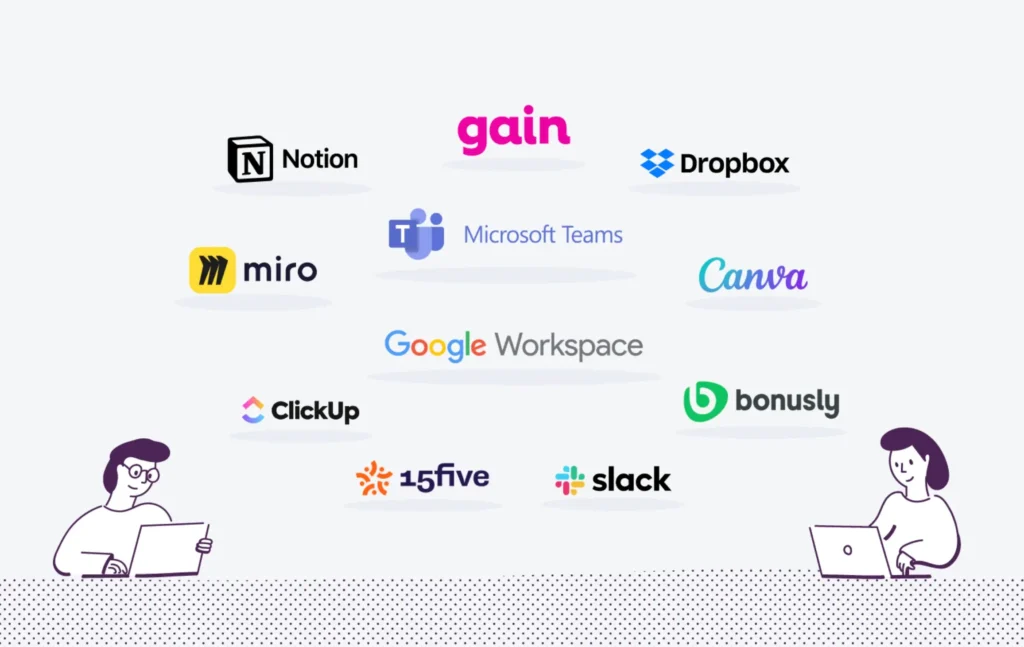
1. Team Spaces and Permission Control
Notion makes it easy to collaborate through dedicated team workspaces, where everyone can share, edit, and contribute in one place. Admins can set granular permission controls — such as view-only, comment-only, or full editing rights — for individual users or groups. This is especially useful for larger teams needing structured roles and data security.
2. Real-Time Collaboration Tools
Real-time editing is seamless in Notion. Multiple users can work on the same page simultaneously, with live cursors and instant syncing. Changes are visible immediately, and there’s a version history feature so you can easily track edits or restore older versions when needed. Comments and mentions also make it easy to give feedback or tag teammates within the content.
3. Using Notion for Remote Teams or Freelancers
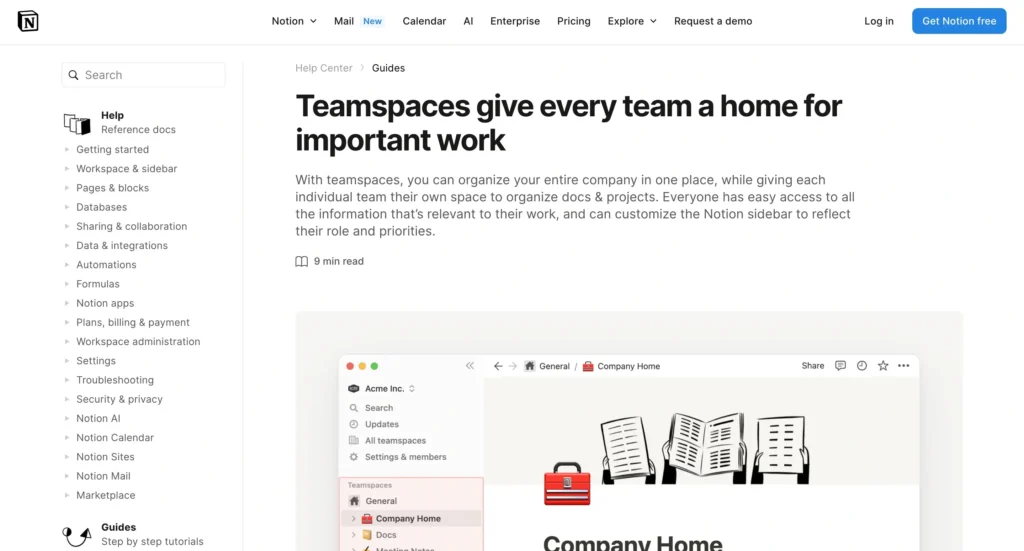
For remote teams and freelancers, Notion acts as a central hub. You can build a shared knowledge base, maintain client dashboards, and track project progress without switching between apps. The mobile app ensures that remote contributors stay connected, and integrations with Slack or GitHub help streamline communication across platforms.
4. Task Assignment and Progress Tracking
Notion allows you to assign tasks using checklists, Kanban boards, or calendar views. Each task can include due dates, assignees, sub-tasks, and linked resources — making it easy to track progress from planning to completion. Filters and views let you organize tasks by priority, project phase, or team member, which is essential for staying on top of deadlines and responsibilities.
Pros and Cons
1. Pros: Versatility, Templates, Collaboration Tools
One of Notion’s biggest strengths is its versatility. Whether you’re managing personal tasks, building a company wiki, or planning client projects, Notion adapts to almost any workflow. It also offers a vast library of pre-built templates — from habit trackers to CRM dashboards — saving you hours of setup time. On top of that, Notion shines as a collaboration tool, offering shared workspaces, real-time editing, and clear permission controls, which make it a favorite among teams and freelancers alike.
2. Cons: Can Be Complex, Occasional Sync Issues
With great flexibility comes a steeper learning curve. For new users, Notion’s depth can feel overwhelming, especially when trying to build databases or automate workflows. Some users also report occasional syncing delays across devices, particularly when working on large pages or in areas with spotty internet. While these aren’t deal-breakers, they can affect the experience in fast-paced environments.
3. Comparison to Alternatives (ClickUp, Evernote, Trello)
Compared to ClickUp, Notion offers more visual customization and writing-focused features, but ClickUp may have stronger native task management and reporting. Against Evernote, Notion stands out with its databases, structure, and collaboration capabilities, while Evernote focuses more on note-taking and simplicity. When stacked against Trello, Notion provides greater flexibility beyond Kanban boards, but Trello remains faster to learn for task-focused users.
4. Who Should (or Shouldn’t) Use Notion in 2025?
Notion is perfect for individuals, freelancers, and teams who need a customizable, all-in-one workspace. If you’re someone who values structure, templates, and modular content, it’s a fantastic fit. However, it may not be ideal for those seeking a quick, out-of-the-box task manager or who need advanced reporting dashboards (as seen in tools like Asana or ClickUp). If you’re short on time or easily overwhelmed by too many options, Notion might require a bit more commitment upfront.
Conclusion
Notion has carved out a unique space in the productivity world by blending note-taking, task management, databases, and collaboration tools into one flexible platform. Its modular design allows users to build exactly what they need — whether that’s a personal journal, a team wiki, or a full project management dashboard.
While it comes with a learning curve and occasional sync hiccups, the overall value it offers — especially with features like Notion AI, real-time collaboration, and custom templates — makes it one of the most powerful all-in-one tools available in 2025.
If you’re looking for a single app to organize your work, ideas, and team communication, Notion is more than worth a try. For beginners, the free plan is a great place to start, and as your needs grow, upgrading unlocks even more potential.
Verdict: Versatile, scalable, and constantly improving — Notion is a top-tier choice for productivity in 2025.


